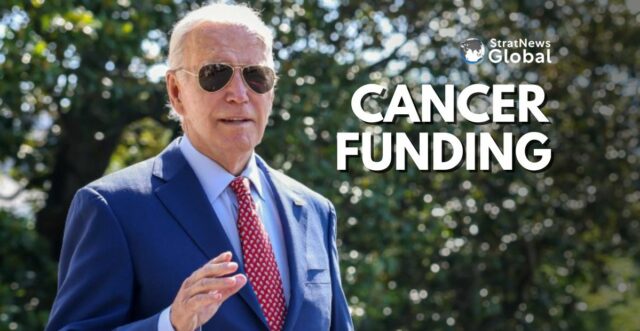President Joe Biden will announce on Tuesday the allocation of $150 million in new federal funding towards developing technology to better help surgeons successfully remove cancerous tumors, according to the White House.
What is ‘Cancer Moonshot’ Program
The ‘Cancer Moonshot’ program was spearheaded by the president and the First Lady that aims to reduce the U.S. cancer death rate by at least half by 2047. The $150 million award which will be revealed during a visit to New Orleans, will be the latest funding infusion into Biden’s initiative. Originally launched under the Obama administration in 2016, the program continued to receive support during the Trump administration as well. President Biden also initiated a private-sector phase, which he paused in 2019 when he began his presidential campaign. Additionally, funding for the initiative was reduced during the pandemic in 2020.
Nearly two million Americans are newly diagnosed with solid tumor cancers each year and surgical removal is often the first step in their treatment, the White House said. The White House added that next-generation microscopes and imaging technology hope to make these surgeries more effective, reducing the need for repeat surgeries and decreasing the damage to healthy tissue, ultimately saving and extending lives.
In its first two years, the administration has invested more than $400 million to fast-track progress on how to prevent, detect, and treat cancer, the White House said. The eight award recipients include Dartmouth College, Johns Hopkins University, and the University of Washington.
Future Concern
The upcoming election may affect future cancer research funding for the ‘Cancer Moonshot’. “With every election, there’s a concern that funding will be cut. And over the past few years with the budget standoffs, that has significantly infected funding for cancer research,” said Dr. Stefan Grant, director of the Tulane Cancer Center.
The new funding announcement follows the Department of Health and Human Services’ recent $9 million award to enhance cancer screening and follow-up care in underserved communities. Despite the initiative’s successes, there are concerns about future funding, particularly with potential political shifts and past funding decreases during the pandemic.
(With Inputs from Reuters)





